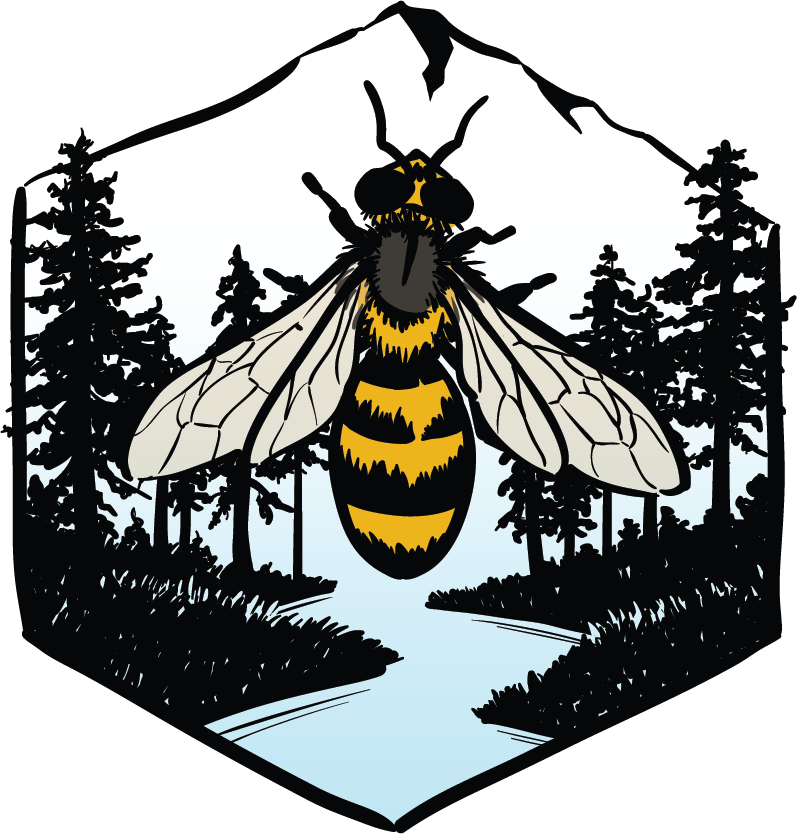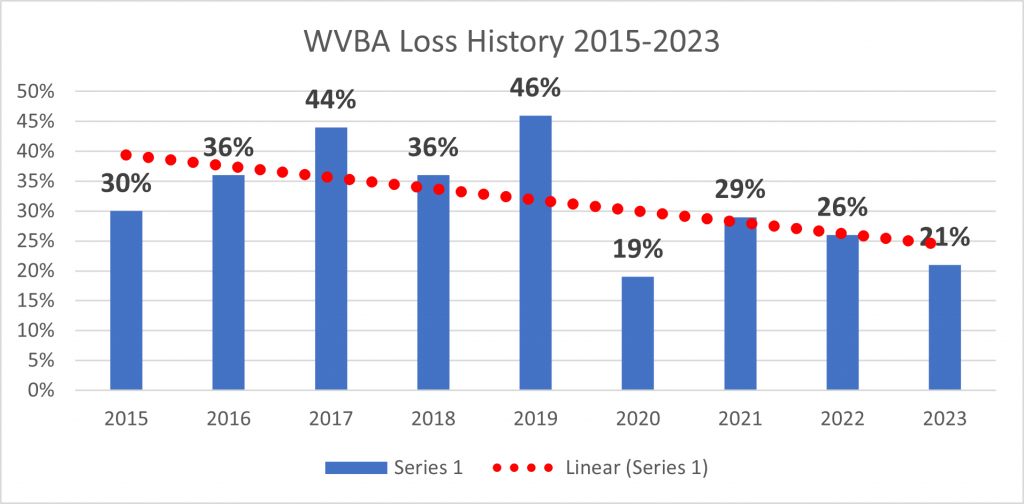The pnwhoneybeesurvey is OPEN. The members of WVBA have been especially supportive of this annual survey of Oregon and Washington backyard beekeepers. Please participate before May 1st @ https://pnwhoneybeesurvey.com/survey/ If you want a quicker survey experience please print the note sheet @ https://pnwhoneybeesurvey.com/notesheet/ which is a great tool just to have in your bee yard as a reminder for all that can be done, not to mention for ease of tracking for next years survey.
For Oregon backyarders, the overall trend is essentially flat over the past 14 years with average losses at 38% overwinter. it has increased slightly the past 14 years for commercially managed colonies to 22%. WVBA losses have been lower the last four years and the loss trend the past 9 years is more strongly downward than statewide (see Chart). The WVBA 9 year average loss is 32%, lower than statewide average of 38%. The latest WVBA report is at: (https://pnwhoneybeesurvey.com/) Click on survey reports under individual club reports 2022-23.
This will be the 15th year of collecting data on PNW losses. Following survey this year I intend to take a deeper dive into the data to determine what might be factors for improved colony success for WVBA respondents. In some years the respondent rate has been low which makes some types of analysis less significant. I have not captured rainfall or temperature data; data is correlative and doesn’t prove doing one thing or another will reduce losses.
An earlier study from Penn State found overwintering success influenced by higher colony weight and the size of the population colonies reached prior to winter. Origin of stock was not important, at least for central Pennsylvania of 4 queen sources included in the study. Higher temperature and precipitation during the warmest quarter of the season was correlated with improved wintering success, presumably as it affected bee forage. [Kai, Overturf et. al. 2022. Winter weather predicts honey bee colony loss at the national scale. Ecological Indicators.145:109].
A look at the loss data gathered by the Bee Informed (BIP) National Survey linked increased winter colony loss rates with winter weather. Specifically, November mean maximum temperatures and mean February precipitation predict success. Unfortunately, this national survey will not be continued due to lack of funding. https://www.sciencedirect.com/science/article/pii/S1470160X22011827
The take home message is we can help improve wintering success by proper colony care prior to November (to plan for years when November is cold) and for when precipitation is lower in February, which once again presumably will affect spring foraging critical for colony buildup.
The Oregon PNW 2023 survey is NOW OPEN and will extend through April. After you have had a chance to open your colonies and assess your winter success, please take the time to enter your data in the survey. It should take less than 5 minutes. Thanks to all WVBA members for efforts in entering your data and “beeing” among those counted. I count on your continued participation this year.

